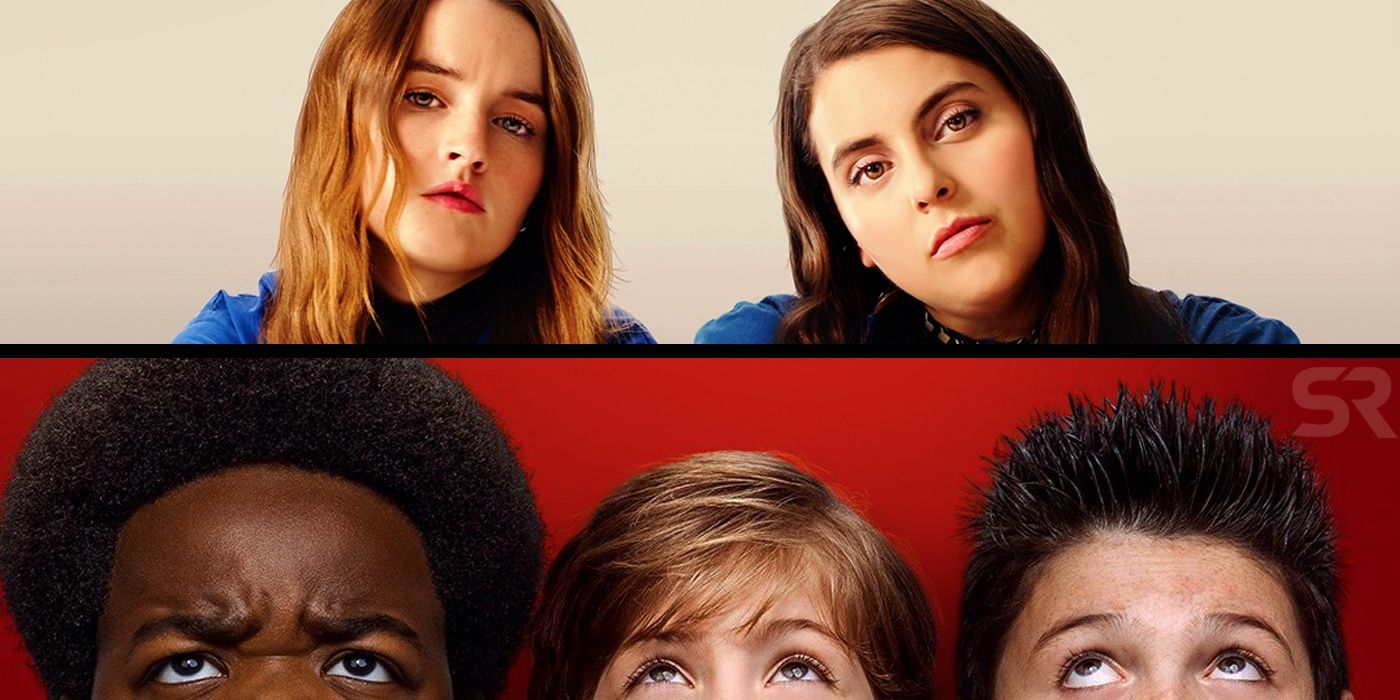This summer saw two similar comedies hit theaters, Good Boys and Booksmart, but only the former became a box office hit. Released this past weekend, Good Boys is the latest twisted offering from Seth Rogen and Evan Goldberg, who previously collaborated for the equally raunchy Superbad, Neighbors, and Sausage Party. The difference here, of course, is that Good Boys revolves around a main cast of tweens - an approach that did not work for everyone, but still yielded entertaining results overall. Audiences seemed to enjoy what Good Boys had to offer, as the film won the box office weekend with $21 million.
Earlier this year, Booksmart hit the scene to widespread critical praise. The feature-length directorial debut for Olivia Wilde, the comedy earned raves for being a fresh and exciting entry in its genre, bolstered by terrific lead performances by Beanie Feldstein and Kaitlyn Dever. Booksmart was such a hit from a critical perspective, Wilde quickly lined up two more directing gigs, including a Time's Up psychological thriller called Don't Worry Darling. While it was great to see audience fall in love with the coming-of-age comedy and Wilde carve out a new niche for herself, it didn't have nearly a much box office success as Good Boys. It earned $22.6 million domestically for its entire run. So what happened?
For starters, release dates played a role here. Good Boys came out in mid-August, well after the major summer tentpoles had come out and had their moment at the multiplex. It didn't face any real mainstream competition. In a prime summer weekend, $21 million isn't enough to win the top spot. In contrast, Booksmart came out over Memorial Day weekend and was a counter-programming release hoping to make some noise amongst Aladdin, Avengers: Endgame, and other high-profile releases. It obviously struggled in that regard and never caught on despite the word-of-mouth. While it's understandable why Annapurna was looking to appeal to older viewers in the midst of summer, they might have benefitted from releasing it at a time where the multiplex wasn't so crowded.
Speaking of Annapurna, the studio that was in such dire financial straits it had to drop a star-studded film about Roger Ailes, they're another reason why Booksmart came up short commercially. Good Boys was distributed by Universal, a major industry powerhouse with extra resources to dedicate to a visible marketing campaign. Incorporating Rogen and Goldberg's shared history into advertising materials helped bolster Good Boys' commercial prospects, since their previous collaborations were also big comedic hits. As an indie, Annapurna was an underdog from the start and could only do so much. Case in point: Good Boys premiered in 3,204 theaters nationwide, while Booksmart debuted in 2,505. That's a difference of almost 700 theaters, which impacted how much Booksmart would be able to bring in. Both were marketed as "Superbad with ___" but there was a discrepancy Annapurna couldn't overcome. Good Boys had more backing behind it and more brand recognizability.
The saving grace for Booksmart is that it cost just $6 million to make, so it still turns a profit with its nearly $26 million worldwide gross. If it had been more expensive to produce (something like Good Boys' $20 million), then it would have been in serious trouble. A lot of credit has to go to Wilde for stretching a micro-budget to its limits and crafting something that clearly struck a chord with viewers who saw it. Ideally, her directing career will only go up from here and her next films will earn more money at the box office. Perhaps one day, she'll be a brand-name filmmaker who can draw in audiences with whatever project she chooses.


